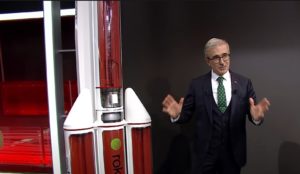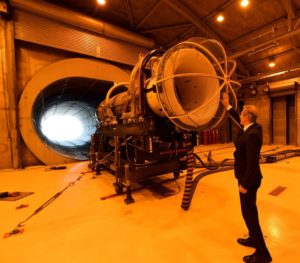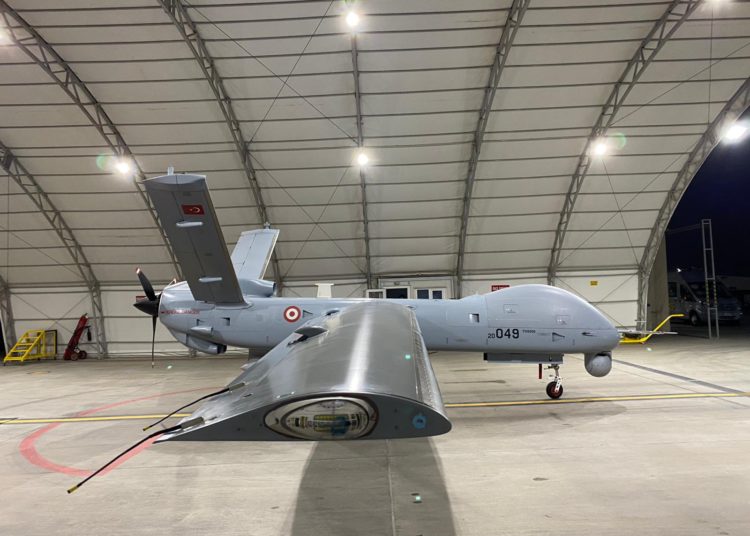Abdullah Bozkurt/Stockholm
The real challenge Turkey’s Islamist rulers face as they endeavor to develop a local defense industry, already under sanctions and restrictions from allies and partners, comes from the lack of a domestic precision machine tool industry.
Turkey relies almost entirely on the import of precision machine tools, mostly from the US and Europe, in running not only civilian industry needs but also developing locally manufactured defense articles.
An admission that the government of President Recep Tayyip Erdoğan has come under increasing pressure over the use of imported precision machine tools for non-civilian use came from two top defense officials in recent months.
“Turkey needs to manufacture precision machine tools. We can’t accept foreign dependence for them. This [having locally made precision machinery] comes from everything else,” said İsmail Demir, head of the Presidency of the Defense Industry (Savunma Sanayii Baskanligi, SSB), Turkey’s top defense procurement agency, on December 17, 2021.
He said Turkey needs a local precision machine tool industry that is capable of manufacturing parts for defense industry needs and that the SSB has been working with the Ministry of Industry and Technology to make that happen.
“We see it [the obstructions] now. They [other countries] are blocking our way [for the procurement of precision tools]. They will not give them to us. They are already not giving them to us. We are experiencing this right now,” he said, revealing the difficulty the Turkish defense industry has been facing for some time.

“There are even cases of not providing Turkey with fewer precision tools. We’re not talking about just three or four countries. We face a block at whatever door we knock on,” Demir added.
In order to bypass sanctions, restrictions and this blockage, the Erdoğan government developed plans to divert civilian use precision machinery for military purposes. But even there it met with resistance from suppliers who were concerned about Turkey’s real motivations in putting civilian goods to use for military ends.
The first public revelation that Turkey has come under an embargo on dual use goods for civilian needs on fears they may be used for military purposes came from Turkish Defense Minister Hulusi Akar. Speaking to lawmakers at a parliamentary committee on November 16, 2021, Akar said: “We are really faced with undeclared embargoes. We can’t get the desired response even from some of our allies, not only in these military matters, in the defense industry, but also in other civil production matters on the grounds that they can be used in any way for this or that purpose.”
The difficulty in moving civilian precision tools to the defense industry was echoed by Demir a month later when he announced that Turkish defense contractors could not obtain certain precision tools that can manufacture highly sensitive parts for defense industry use. He explained that foreign manufacturers place GPS locaters and counters on precision tools imported for civilian use in Turkey and regularly check the machinery to make sure it’s used for its intended purpose. “You can’t even move them,” Demir said.
The government tried to enlist the help of a local industry advocacy group to encourage the production of precision machine tools in Turkey with little success. According to a report submitted in 2019 to the government by the Machine Tools Industrialists and Businessmen’s Association (Takım Tezgahları Sanayici ve İş İnsanları Derneği, TİAD), manufacturing precision tools is difficult if not impossible.
The report concluded that the production of computer-controlled metal processing machines, which are strategically important for all industrial sectors from defense to aviation, from automotive to medical, remains at a weak level in Turkey. It stated that 80 percent of industry’s needs relies on foreign suppliers and that critical components such as computerized control units were not manufactured in Turkey. TİAD asked for substantial state subsidies and incentives to reduce dependence on foreign suppliers.

The Erdoğan government has been facing increasing restrictions, embargoes and sanctions on the defense industry not only by its NATO allies but also by its trading partners such as Russia over growing concerns that it may harbor irredentist ambitions. The restrictions and in some cases the ban on the sale of military goods and defense industry products as well as precision machine tools is a direct response to Turkey’s military adventurism in cross-border operations that have extended from Libya to the Caucasus and from Syria to the eastern Mediterranean in recent years.
The US sanctioned Turkey over the purchase of Russian S-400 long range missiles, a deal worth $2.5 billion, and expelled it from the F35 Joint Strike Fighter program, while Canada and Germany imposed bans on the export of critical components used to manufacture armed drones and artillery cannons in Turkey. Russia has made clear it would not share missile technology with Turkey after Ankara’s insistence on technology transfer before buying a second shipment of S-400s.
Turkey has ambitious defense industry projects ranging from manufacturing its own combat jets to long-range ballistic missiles. President Erdoğan often boasts that Turkey has reduced foreign dependence in the defense industry to 20 percent of the total, although it is not clear how that calculation was made. His family members and business associates own and control many defense contractors in Turkey including a company that manufactures armed drones.
According to Erdoğan, who delivered a speech on August 18, 2021 at the International Defense Industry Fair in Istanbul, Turkey has 750 active defense projects as opposed to only 62 in 2002, when he came to power. He said the number of Turkish defense contractors has increased to 1,500 with a budget of $75 billion and annual turnover of $11 billion.
“Turkey has put an emphasis on the defense industry in order to overcome the difficulties caused by global suppliers and the hidden and open embargoes it has been subjected to,” Erdoğan said.
The procurement of precision tool machinery is not the only challenge Turkey faces in developing its defense industry. It also suffers from a lack of qualified personnel, which was caused mainly by a failing education system and bureaucratic hurdles in public-private partnership in technology and innovation. In 2016 the Erdoğan government shot itself in the foot when it purged thousands of highly skilled engineers from key government institutions under the pretext of fighting the Gülen movement, a group that is opposed to Erdoğan and his government.
Economic and financial hardship amid soaring inflation and a battered currency also make it harder for the government to retain skilled workers in state-owned defense industry enterprises. Demir revealed that the government has been working on a plan to make sure that skilled workers don’t leave their jobs without explaining in detail what those plans entail.












